May

EU: International personal data transfers: Presidency seeks "a coherent and ambitious European policy"
At the Justice and Home Affairs Council meeting on 9 and 10 June ministers will be invited to discuss the need for "a coherent and ambitious European policy" on international transfers of personal data, which are described in a Presidency discussion paper - published here - as "a major strategic challenge in several important areas of public policy". We are also publishing a report by the French Presidency of the Council on "international personal data flows and trade agreements."
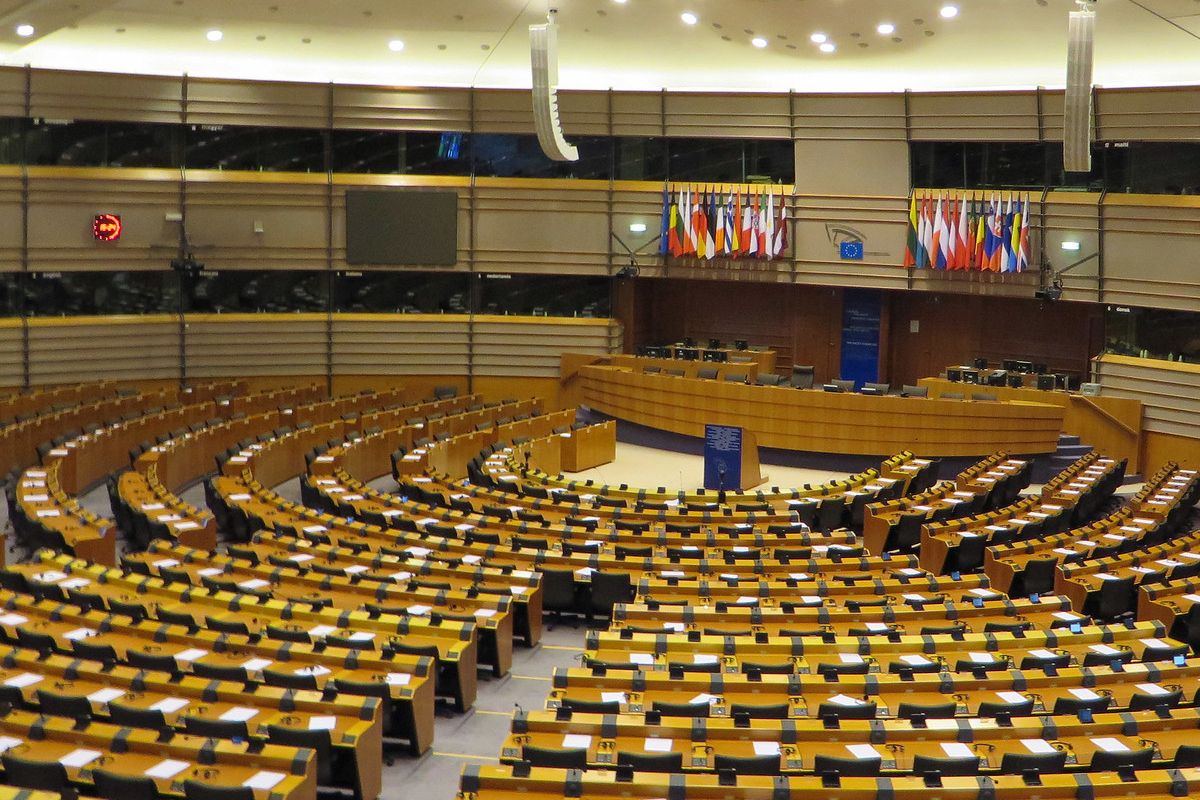
EU: Inquiry must examine use of spyware against human rights activists worldwide, MEPs told
Over 20 human rights organisations, including Statewatch, have urged a European Parliament committee of inquiry into the use of Pegasus and other forms of surveillance spyware to invite testimony from targeted activists from across the globe, rather than just within in the EU. Read the open letter to the committee here.

EU: Policing: Council close to approving position on extended biometric data-sharing network
The Council of the EU is close to reaching an agreement on its negotiating position on the 'Prüm II' Regulation, which would extend an existing police biometric data-sharing network to include facial images and offer the possibility for national authorities to open up their databases of "police records" for searches by other member states.
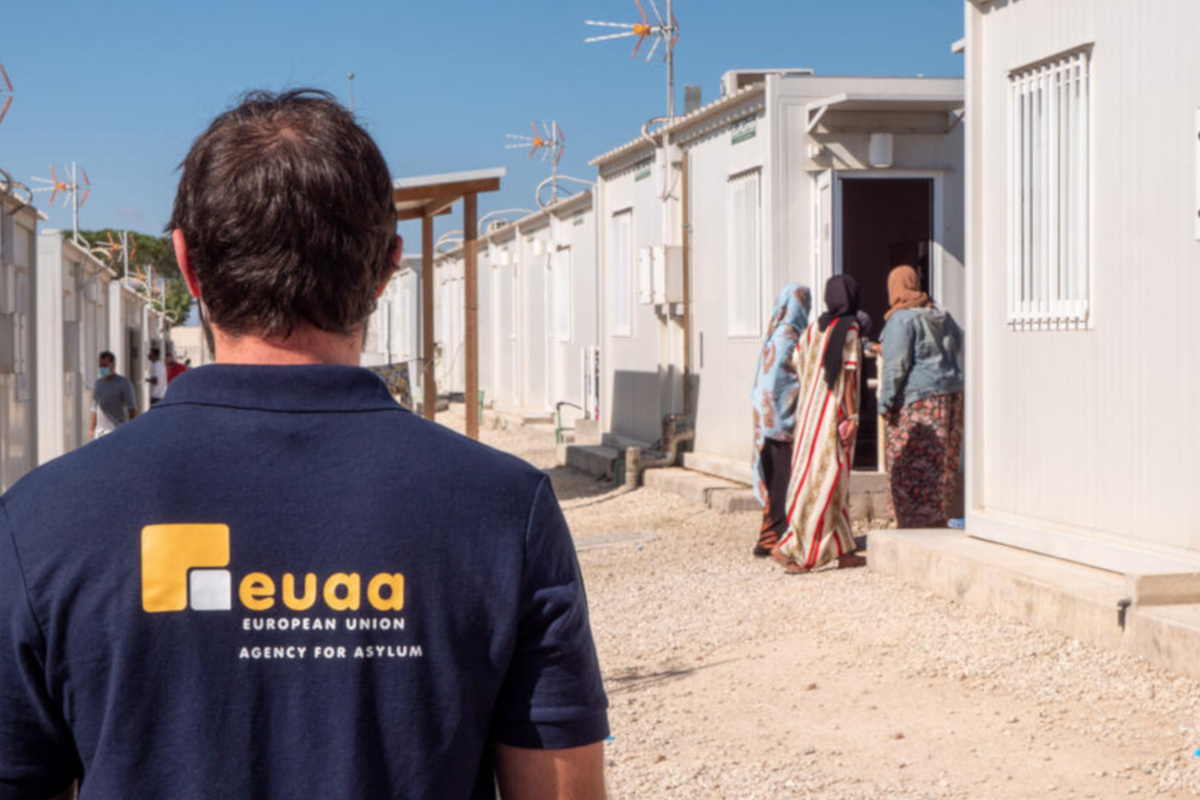
EU: Attempts to increase "convergence of asylum practices" and information-sharing on "asylum applicants presenting a threat to public order"
In an attempt to give more substantial meaning to the idea of a 'Common European Asylum System', plans are underway to encourage "the convergence of asylum practices". The French Presidency of the Council also hopes to increase information exchange on asylum applicants between national authorities, including "asylum applicants presenting a threat to public order." However, plans for a special information exchange mechanism have received a frosty reception from member states.
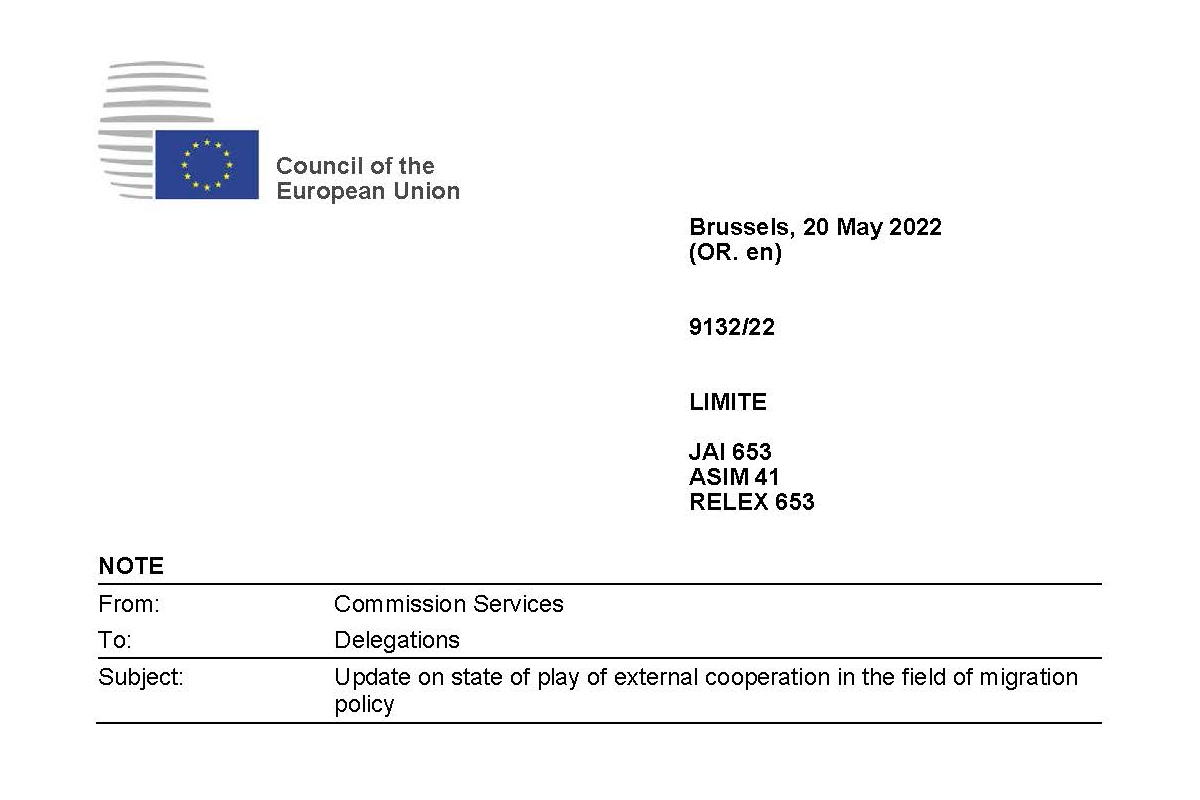
European Commission: Update on state of play of external cooperation in the field of migration policy
A recent European Commission document circulated to member state delegations in the Council demonstrates the scale and scope of the EU's "external migration" initiatives, which cover countries ranging from Bangladesh to Bosnia, as well as a number of multilateral initiatives. The document includes an overview of the current level of cooperation between the EU and "partner" countries and fora, as well as lists of recent meetings and events.
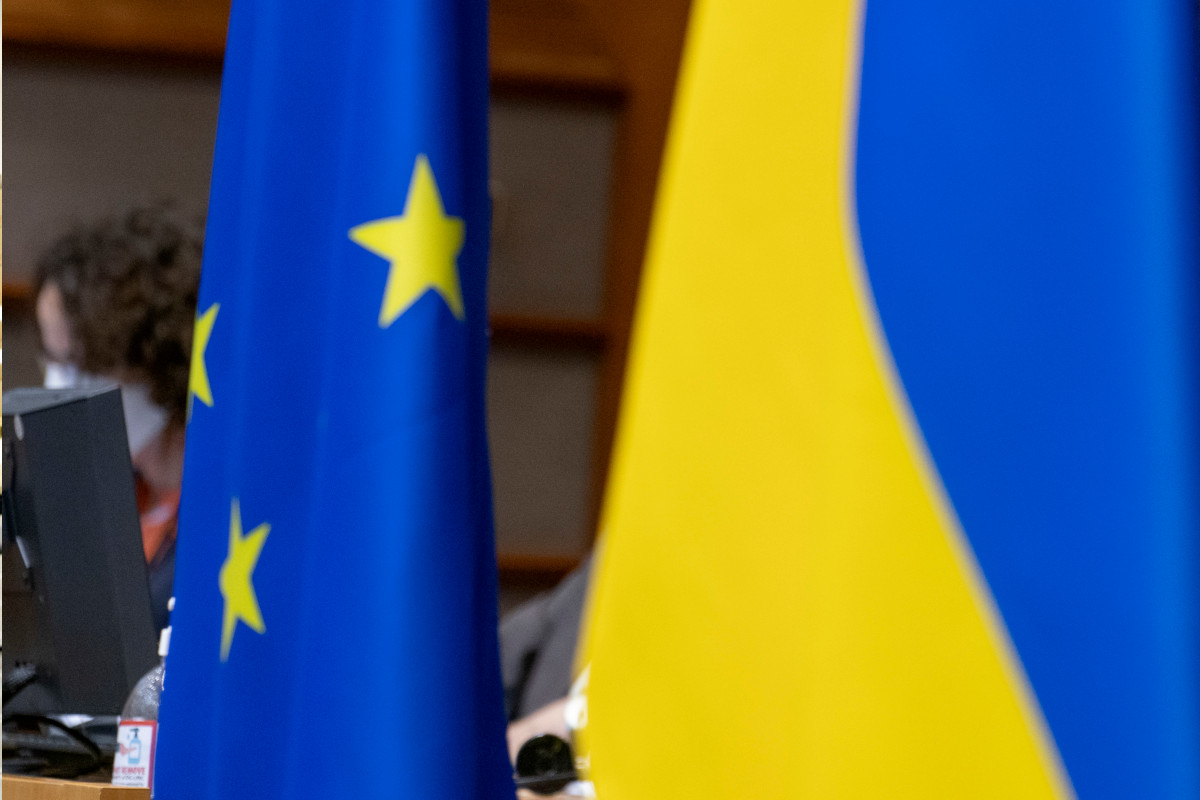
EU: Tracking the Pact: Plan for biometric registration of Ukranian refugees "unrealistic"
The French Presidency recently proposed expanding the Eurodac database even further, to include beneficiaries of temporary protection. Currently the only nationality to enjoy the benefits of the EU's Temporary Protection Directive are Ukranians fleeing the Russian invasion. Although some member states are in favour of the plan, Hungary and Poland are strongly opposed.
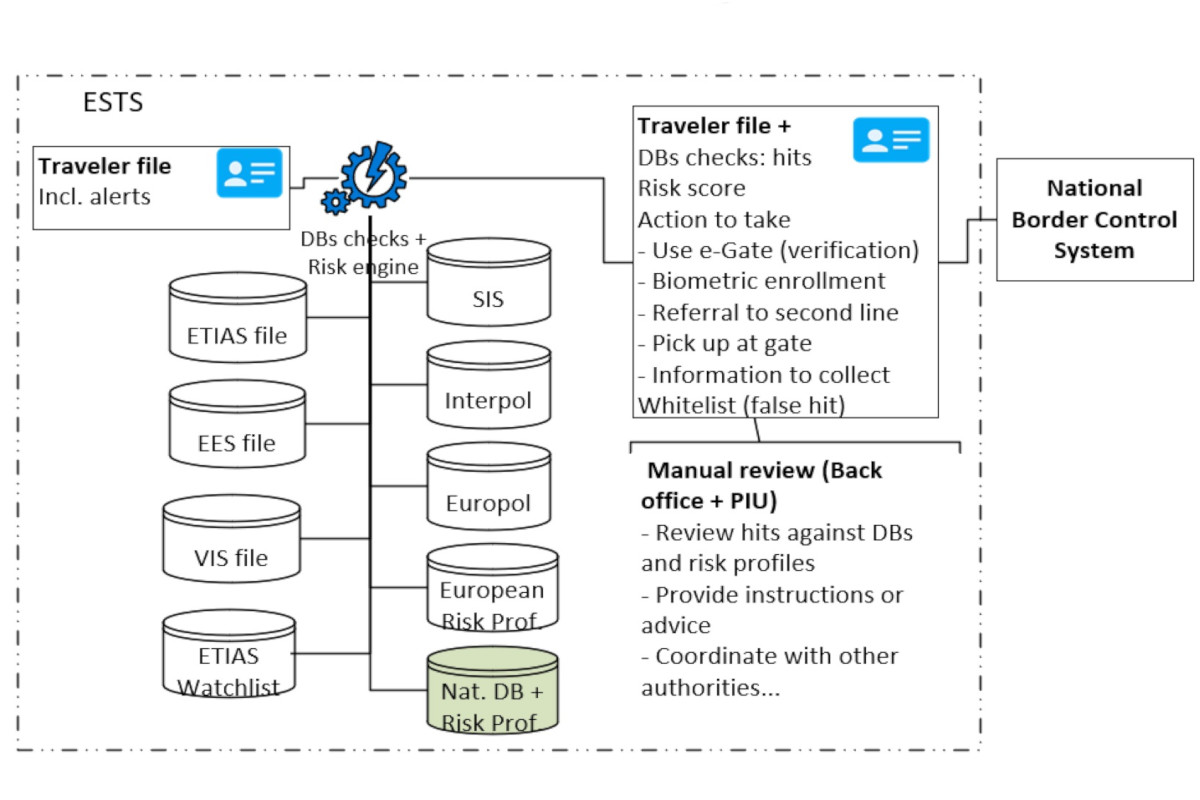
EU: Agencies propose a "European System for Traveller Screening" that "could include AI technology"
In 2019, Europol and Frontex set up the 'Future Group on Travel Intelligence' with aim of "identifying and elaborating new operational opportunities" by building on the data processing opportunities offered by the EU's 'interoperable' databases. The final report, published here alongside a wealth of preparatory documents, proposes a "European System for Traveller Screening", described as "a decentralised, yet EU-wide, screening function for travellers," which "could include AI technology".

EU: Council to push for “on the spot” biometric ID checks, inserting “all available data” in Schengen Information System
The Council of the EU is set to call for “an ambitious implementation” of new rules on EU policing and immigration databases, including “on the spot” biometric ID checks with mobile fingerprint readers and face scanners; ensuring that “all available data” from national databases is added to the Schengen Information System; and enabling “full use of discreet checks, inquiry checks and specific checks,” which allow the gathering of information about targeted individuals.
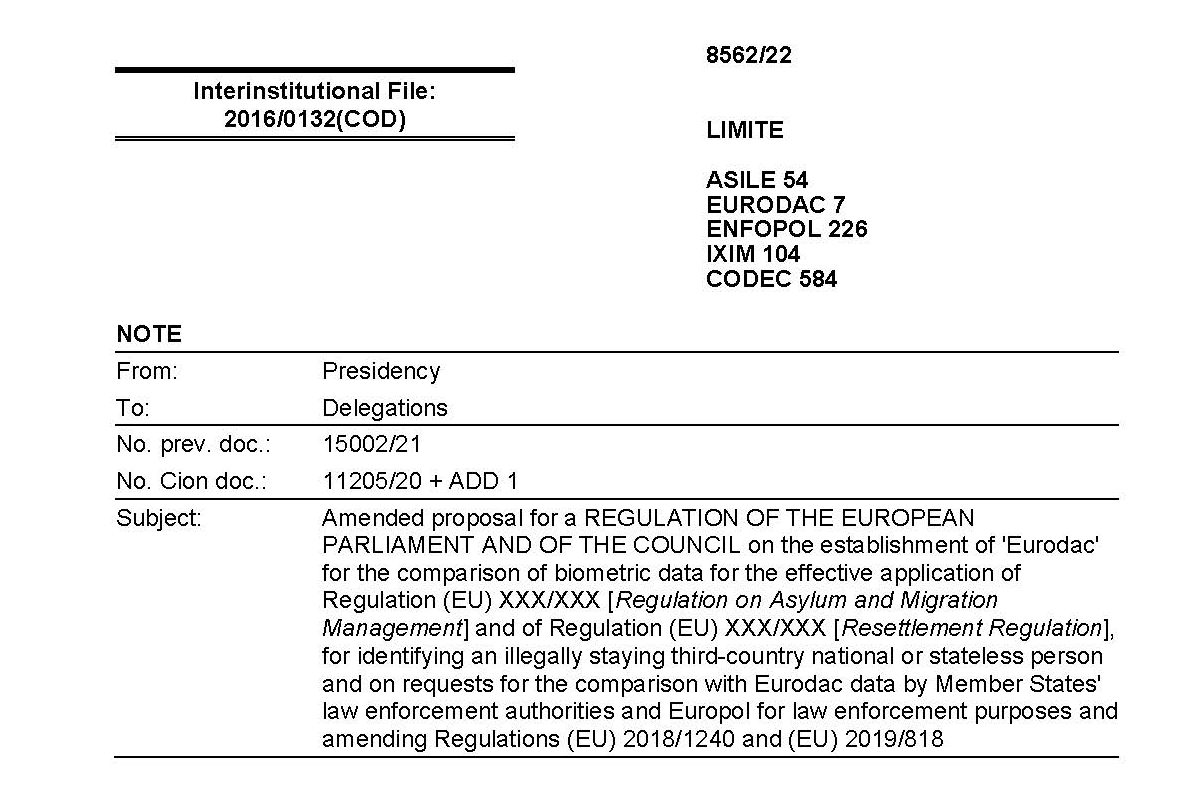
EU: Ukraine: New proposal to add temporary protection beneficiaries to Eurodac database
A proposal to expand the Eurodac database of refugees' biometric data has been the subject of negotiations in the Council and Parliament since 2016, but discussions have been stuck for some time. Now the text is back on the agenda in the Council, with a proposal to include another group in the database: beneficiaries of temporary protection, which at the moment consists of Ukranians who have fled the Russian invasion.

EU: Police to be granted cross-border access to driving licence photos
EU police forces will be able to retrieve the photos of holders of driving licences held by other member states, according to the latest amendments to a proposal known as 'Prüm II', which will massively expand cross-border police access to biometric and other data. There is also the possibility for the UK to join the upgraded system.
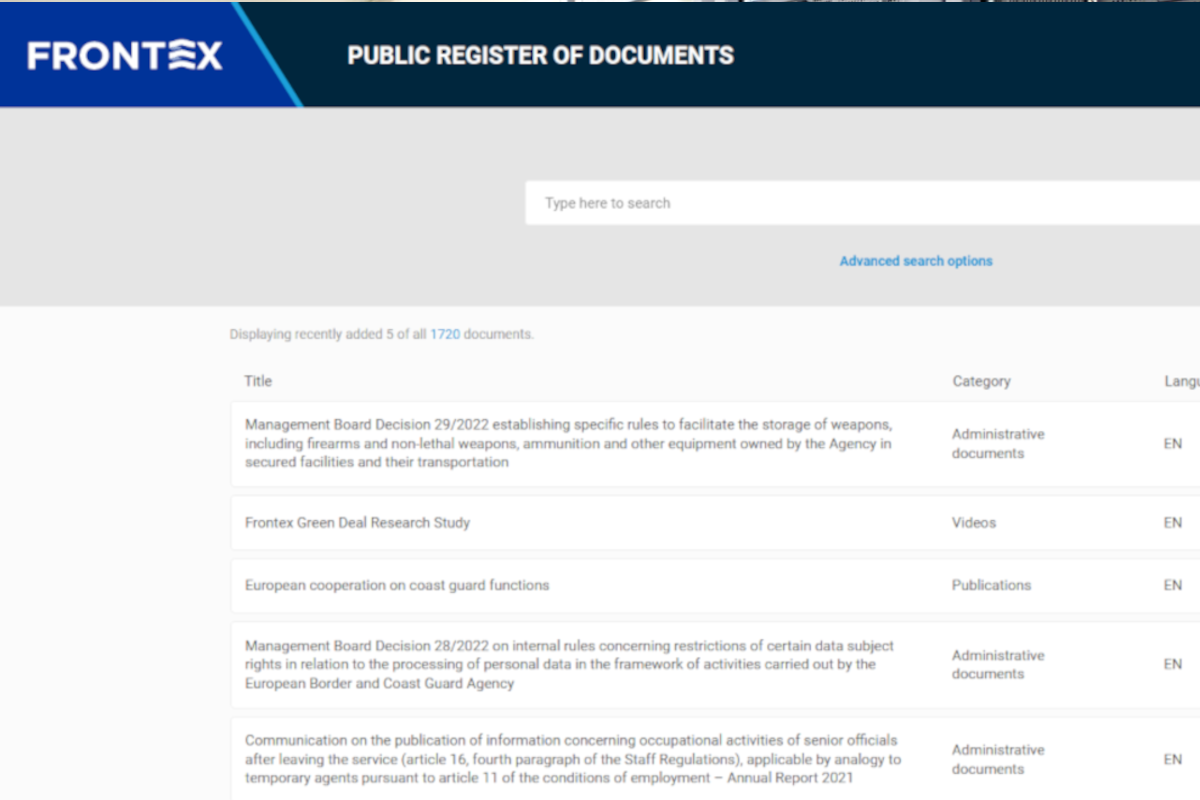
EU: Disappearing documents: Frontex's transparency efforts fall short of requirements
Earlier this year, EU border agency Frontex created a public register of documents, as the law requires, in response to a complaint filed by Statewatch. However, the register does not include everything it should - and some documents that were previously made public appear to have been removed from the agency's website.

EU has spent over €340 million on border AI technology that new law fails to regulate
The EU has spent €341 million on research into artificial intelligence technologies for asylum, immigration and border control purposes since 2007, yet the proposed AI Act currently being debated in EU institutions fails to provide meaningful safeguards against harmful uses of those technologies, says a report published today by Statewatch.
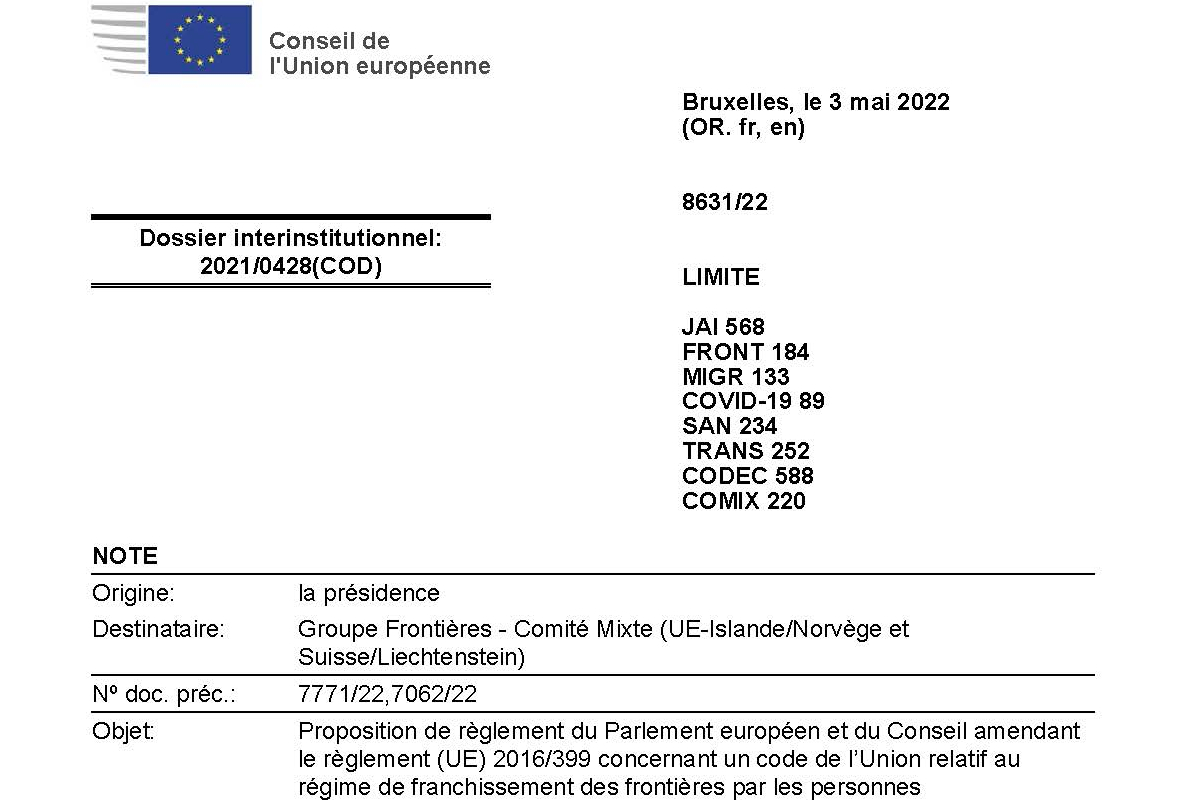
EU: Reform of the Schengen Borders Code: Presidency compromise text
On 3 May the French Presidency of the Council circulated its most recent proposed amendments to the Schengen Borders Code, which is to be amended in order to introduce new powers to deal with: the so-called "instrumentalisation of migrants" by third states and non-state actors; border closures and controls in the event of threats to public health; the reintroduction of internal borders within the Schengen area; and identity checks and surveillance at the external and internal borders. We are also publishing previous compromise texts.
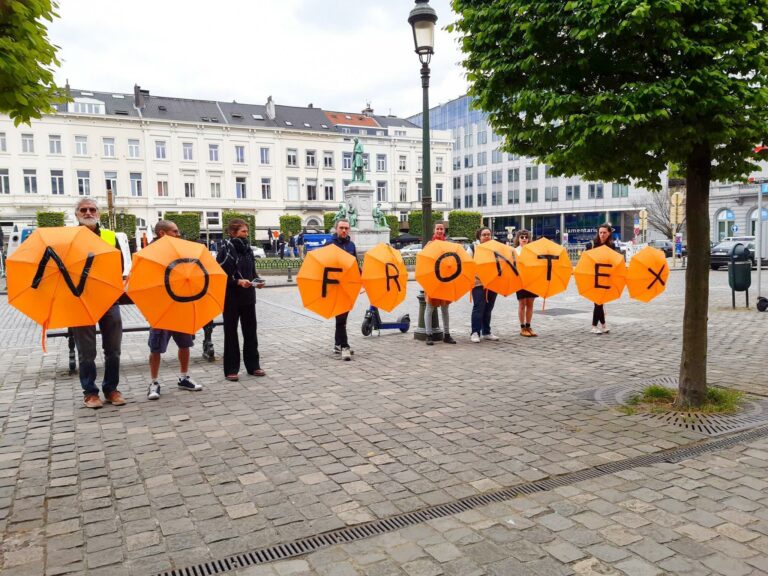
Former Frontex officer pledges to vote “no” in referendum on Swiss funding for the agency
A Swiss border guard who served in around 10 Frontex operations has said he will vote “no” in the upcoming referendum on whether or not to increase the funding provided by Switzerland to the EU border agency, as he fears that the country may end up being an accomplice in unlawful actions.

Spain: Launch of the "Vidas sin rastro" campaign, for the rights of the dead and missing migrants at the Southern border
Today, 10 May 2022, begins the campaign "Vidas Sin Rastro", "For the rights of the dead and disappeared at the southern border and those of their families", initiated by the Asociación Pro Derechos Humanos de Andalucía (APDHA) and the Grupo puente de activistas internacionales.
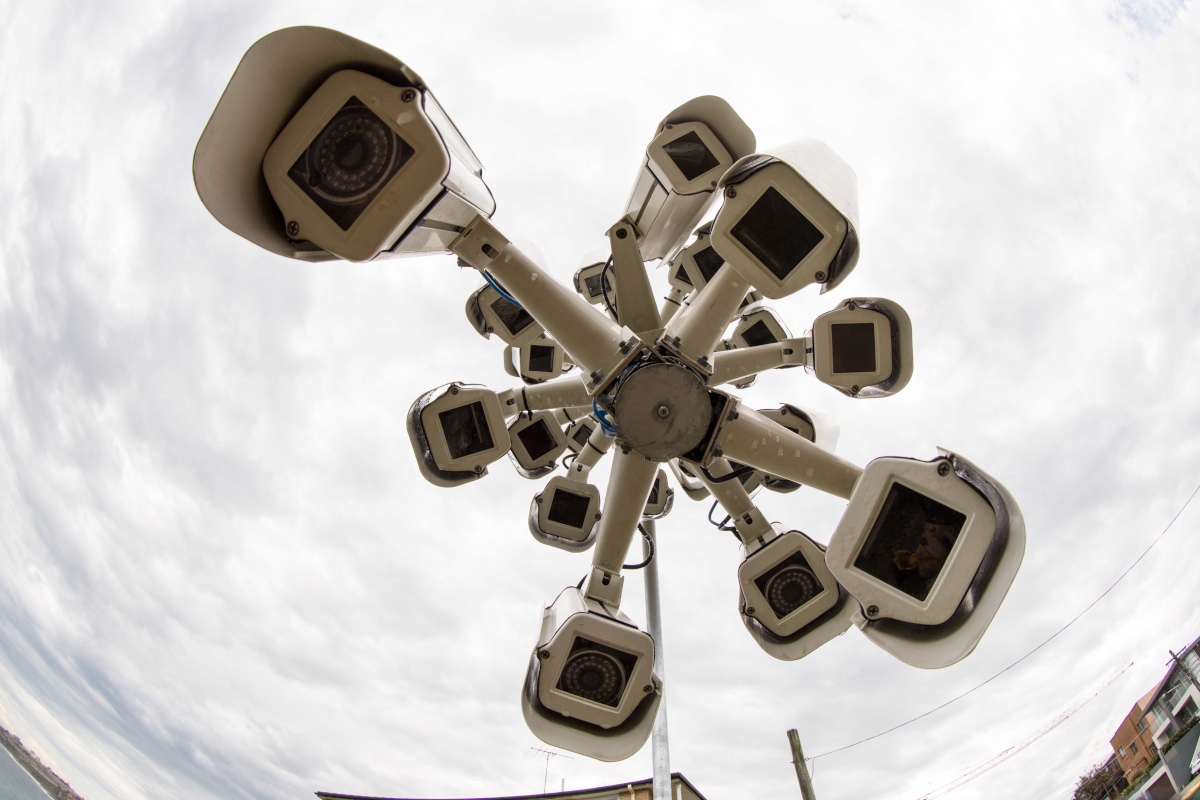
EU: MEPs called upon to ban biometric mass surveillance
Today, a global coalition of 53 civil society organisations have joined together to call on Members of the European Parliament to use their democratically-elected powers to protect us all from biometric mass surveillance practices. The EU must not legitimise these dangerous practices. Otherwise, EU lawmakers risk setting a precedent for uses of AI-based technology which could destroy people’s anonymity forever and suppress a broad range of our rights and freedoms.

Regulating migration technology: how the EU’s AI Act can better protect people on the move
As EU institutions work to amend the proposed Artificial Intelligence Act (AI Act), exploring and understanding the impact of AI systems on marginalised communities is vital. AI systems are increasingly developed, tested and deployed to judge and control migrants and people on the move in harmful ways. How can the AI Act prevent this?
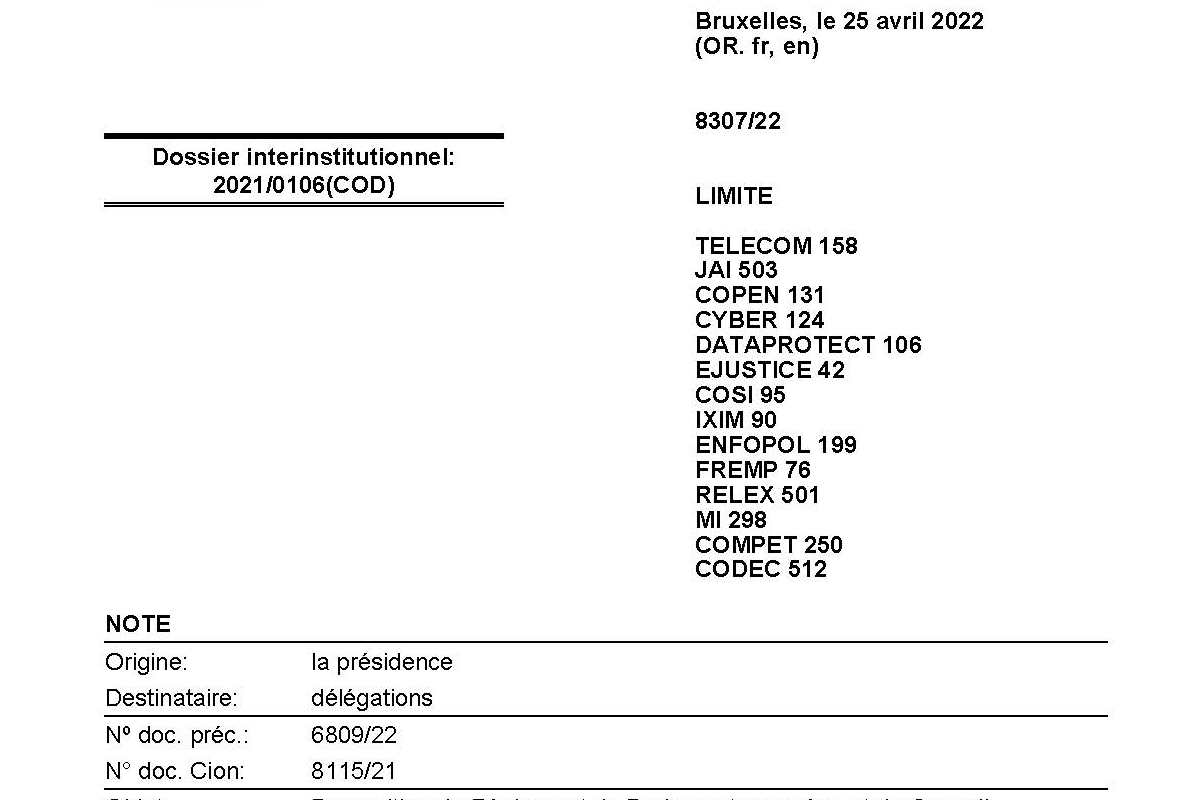
EU: Artificial Intelligence Act: latest Presidency compromise text
The latest compromise text circulated by the French Presidency of the Council on the proposed Artificial Intelligence Act deals with the chapters on notifying authorities, notified bodies and national competent authorities; as well as the titles on an EU database for high-risk AI systems and post-market monitoring and market surveillance.

EU: Unprecedented funding for security policies will boost militarisation and border externalisation, new report shows
A new report published by Statewatch and the Transnational Institute provides a critical guide on the EU's security, military and border budgets for the 2021-27 period, explaining how the budgets work, who will make decisions and set spending priorities, and what degree of transparency and democratic accountability is in place.
Spotted an error? If you've spotted a problem with this page, just click once to let us know.